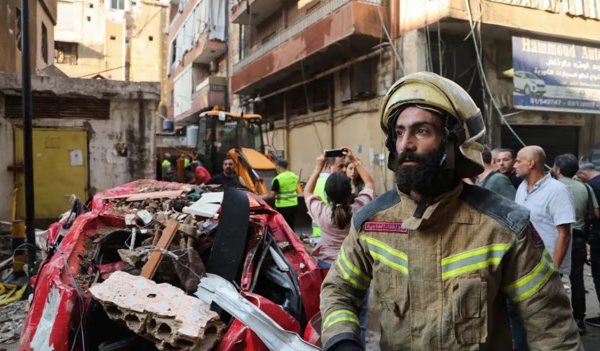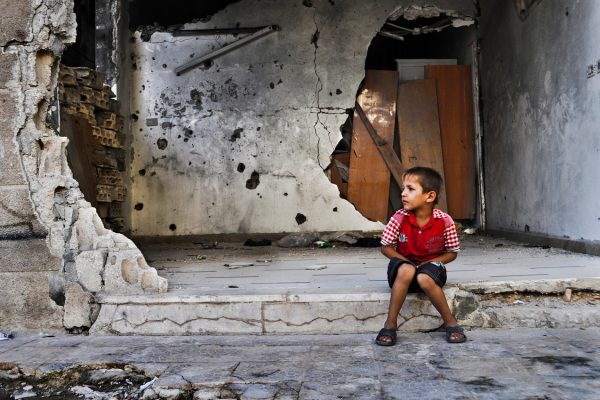An NGO is held accountable for its work each and every day. When you donate to a charity this Ramadan, make sure that you’re investing your money wisely – where it’ll reach those in need in the most effective way possible.
An NGO is held accountable for its work each and every day. When you donate to a charity this Ramadan, make sure that you’re investing your money wisely – where it’ll reach those in need in the most effective way possible.
Ramadan is fast-approaching alhamdulillah!
Not only is this the most sacred time of the year for Muslims, it’s also the biggest time for giving Sadaqah and Zakat across the Muslim community.
However, with more and more Muslim and non-Muslim charities out there offering to distribute your Zakat and Sadaqah, Muslims understandably want to know how their money is being spent and how their donations will make a difference.
Donors and potential donors want to know how organisations such as Islamic Relief are spending their donations, what measures are in place to protect their funds and how we’re held accountable for our work.
It can be easy to be taken in by marketing speak during this busy period. So, how can we measure a charity’s level of accountability and transparency?
Well, having been working in the sector since 1984, we’ve learnt a thing or two.
Here are our top tips!
1. Know that 100% donation policies AREN’T REAL
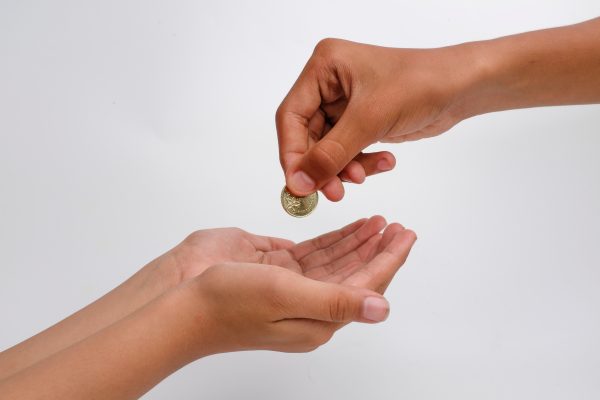
“100% donation policy” is the first thing on our list – and many organisations market this. However, the simple truth is that it costs money to deliver charitable aid – that’s a fact.
It also costs money to do it well, ensuring the people who need it most receive the best possible support and ensuring that money goes to where it is needed. The money for these costs has to come from somewhere.
Often a charity that quotes a 100% donation policy will cover admin costs through Gift Aid provided by the UK government. But that’s just creative accountancy. And remember that Gift Aid is covered by the taxpayer anyway, so someone’s paying for it!
Remember also that no one employed in a charity is working for free; even carrying out monitoring and evaluation comes at a cost. You want accountants to guarantee that grants are being paid? You have to pay for them. It’s that simple!
Here at Islamic Relief, we prefer to be honest about how we use our donations. We aim to use donations in the most effective way possible, and we aim to be as transparent as possible.
And that’s what every charity should be doing: explaining how your donations are used.
For every £1 donated to Islamic Relief:
- 87p goes directly towards programmes and initiatives that help people in need
- 4p is spent on administrative costs
- 9p is invested in raising more funds
- And know this: with every £1 that we spend on fundraising, we receive £10 back in donations
Admin costs can cover governance costs (e.g. audits to comply with legal obligations and Charity Commission rules), rent for buildings, insurance, admin staff salaries, volunteer expenses, equipment (e.g. IT equipment) etc.
Admin costs help us run a secure, safe and efficient charity. And any responsible, professional charity will be looking to run their programmes in the same way. No ifs, no buts.
If they’re saying otherwise: it’s simply a question of wording or… they’re not up to scratch.
2. Ask if they’re certified
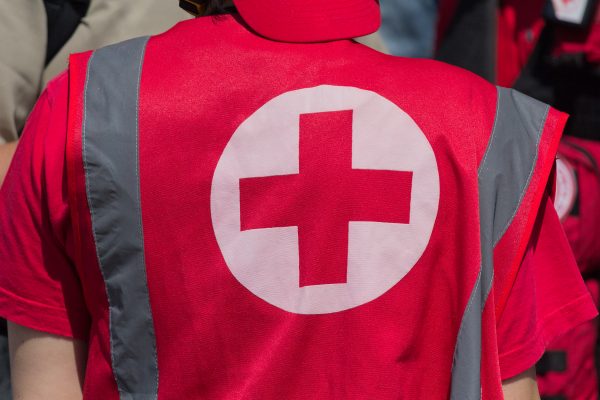
If a charity is using your donations legally and appropriately, there are many ways that they’ll be looking for accreditation for their work. When it comes to humanitarian aid for example, we’re one of only 20 organisations in the world that meet the Core Humanitarian Standards, the highest standard in our sector.
This acknowledges the high quality and effectiveness of our work – and that of other signatory bodies too. When an organisation is accredited, it’s accountable, certified, and credible.
That’s why we’re also a signatory to the Code of Conduct for the International Red Cross and Red Crescent Movements and NGOs in Disaster Relief, meaning that our work commits to global standards of non-discrimination, human rights law, and global ethics.
Some of the other membership bodies that Islamic Relief is part of that you’ll want to look out for are:
- Bond (UK network for NGOs working in international development)
- The Disasters Emergency Committee, or DEC, (a network of the UK’s leading humanitarian agencies which work together following a major emergency)
- The VCS-EP (Voluntary and Community Services Emergency Partnership) managed by the National Emergencies Trust, which oversees grants for emergency work in the UK
We are also accredited by the Institute of Leadership and Management (ILM) – part of the City & Guild Group and a signatory to the Global Charter for Change.
You may also want to see if they’ve won any awards too.
In 2018, we were awarded The Princess Royal Training Award, in recognition of our work with volunteers. We were also named the winner of the prestigious Bond Innovation Award, which recognised our inventive approach to helping to eliminate extreme poverty in Bangladesh through our Alternative Livelihoods for Orphaned Families (ALO) programme.
Then in 2019, we were awarded Special Commendation in the Best Charity Film category of the highly respected Third Sector Awards, when we were also awarded Best Marketing Campaign for our Ramadan campaign in 2018.
And then last year, we were granted a Special Commendation in the Third Sector’s Digital Innovation category for our mobile gaming app, Virtue Reality, which raises awareness of international development and tackles Islamophobia at the same time. Masha’Allah!
3. Research their key values

As a non-profit organisation, each charity should remain guided by its mission and values.
An Islamically-inspired organisation, we remain guided by the timeless values and teachings of the Qur’an and the prophetic example (Sunnah).
Every day we strive to embody our five key values:
- Sincerity (Ikhlas) – Our efforts are driven by sincerity to God and the need to fulfill our obligations to humanity
- Excellence (Ihsan) – Our actions are marked by excellence in our operations and the conduct through which we help the deserving people we serve
- Compassion (Rahma) – We believe the protection and well-being of every life is of paramount importance and we join with other humanitarian actors to act as one in responding to suffering brought on by disasters, poverty, and injustice
- Social Justice (Adl) – Our work is founded on enabling people and institutions to fulfill the rights of the poor and vulnerable. We work to empower the dispossessed towards realising their God-given human potential and develop their capabilities and resources
- Custodianship (Amana) – We uphold our duty of custodianship over Earth and its resources, and the trust people place in us as a humanitarian and development practitioner to be transparent and accountable
We know that not only are we accountable to you our donors, the Charity Commission, and all our partners, but also to Allah (SWT). We also understand that your Sadaqah and Zakat donations are a huge amanah (trust).
Be sure to do your research and see what guides any organisation you’re interested in.
4. Look at their results

As well as the values behind an organisation’s work, what’s really critical is: their results.
Are they achieving what they’re setting out to do? And as a donor, is this being communicated to the public, for example through annual reports, feedback emails, website updates, articles in the press, regular blogs, and relevant social media engagement?
The proof is in the pudding as they say.
We believe our work speaks for itself. Since 1984, we’ve transformed and saved over 120 million lives in over 40 countries across the globe. In 2020 alone, we assisted 13.8 million people both here in the UK and overseas. Subhan’Allah!
We don’t only respond in times of emergency. We work to empower local communities to break out of poverty and build a sustainable future for themselves, their families, and their communities.
Through resilience – relief – recovery, we help break the cycle of poverty and allow communities to build their own futures for the long-term.
This ensures that the money we spend is used in the most efficient and effective way possible, to build long-term change.
Make sure that you’re able to see the results of such work! You should be able to follow your donation and the impact of the money you’ve invested!
5. Find out about their partners
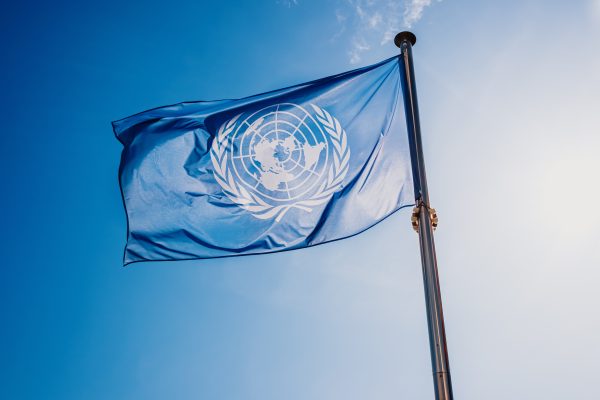
When an organisation holds a longstanding reputation and trust in their sector, they’re able to build key partnerships with non-governmental and governmental bodies. This will help them implement their programmes and make your money go even further.
Because we’re trusted by the UK Government, we’re able to make donations go further through their UK Aid Match scheme. Not only that, but we’re the only Muslim organisation on the DEC (Disasters Emergency Committee) – a network of the UK’s 14 leading humanitarian organisations. By working together, your donations go even further.
We have consultative status with the UN Economic and Social Council and have signed a memorandum of understanding with UN Women to strengthen joint work on empowering women.
Some of our implementing partners include:
- The UN Refugee Agency (UNHCR)
- The UN World Food Programme (WFP)
- The European Commission’s Humanitarian Aid and Civil Protection department (ECHO)
Working with these agencies, an NGO is held accountable for its work each and every day. When you donate to a charity this Ramadan, make sure that you’re investing your money wisely – where it’ll reach those in need in the most effective way possible.
By following these five pieces of advice, you can make better-informed choices about your donation habits.
Ramadan Mubarak from the Islamic Relief team!
To find out more about Islamic Relief’s work, visit www.islamic-relief.org.uk.

